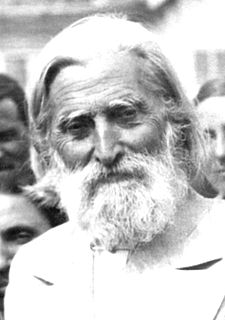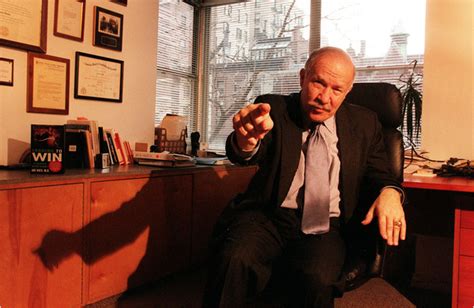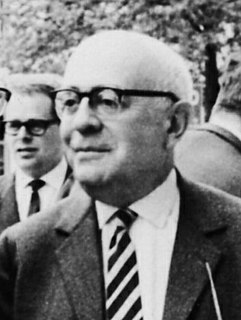A Quote by Erich Fromm
Only the person who has faith in himself is able to be faithful to others.
Related Quotes
Tibetans look at a person who holds himself above others, believing he is better than others and knows more, and they say that person is like someone sitting on a mountain top: it is cold there, it is hard, and nothing will grow. But if the person puts himself in a lower position, then that person is like a fertile field.
That historian or scholar who delights in pointing out the weaknesses and frailties of present or past leaders destroys faith. A destroyer of faith — particularly one within the Church, and more particularly one who is employed specifically to build faith — places himself in great spiritual jeopardy. He is serving the wrong master, and unless he repents, he will not be among the faithful in the eternities. Do not spread disease germs!
A person is either himself or not himself; is either rooted in his existence or is a fabrication; has either found his humanhood or is still playing with masks and roles and status symbols. And nobody is more aware of this difference (although unconsciously) than a child. Only an authentic person can evoke a good response in the core of the other person; only person is resonant to person.
If you wish others to respect you, you must show respect for them...Everyone wants to feel that he counts for something and is important to someone. Invariably, people will give their love, respect, and attention to the person who fills that need. Consideration for others generally reflects faith in self and faith in others.
There is a difference between criticizing people and criticizing a people's uninformed ideals. That is, unless one defines himself or others by their ideals, then he is offended, and usually offended secretly. Because oddly enough, this person is the same person quickest to resort to dismissive name-calling, such as 'bigot' or 'zealot'. And oddly enough, he is always the one, the 'open-minded' one, who adamantly protests for, not only himself, but others not to listen to any type of scholarly theological truth inherently for the sake of his own personal, moral beliefs.
He didn't believe in a God who sifted through prayers, answering some and ignoring others, no matter how unworthy or worthy a person might be. Instead, he preferred to believe in a God who bestowed all people with gifts and abilities and placed them in an imperfect world; only then was faith tested, only then could faith be earned.
It may be a procession of faithful failures that enriches the soil of godly success. Faithful actions are not religious acts. They are not even necessary actions undertaken by people of faith. Faithful actions, whether they are marked by success or they end in failure, are actions that are compelled by goodness.





































